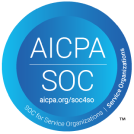It’s National Nurses Week and we’re taking the opportunity to honor and reflect on the impact nurses make on patients’ lives. We rely on nurses to be the first point of contact in most health care situations, from the routine to the complex, and expect them to rise to every challenge. Given that the skills, knowledge, and nursing education needed to perform effectively are ever-evolving in healthcare, it’s important to address how to best support them in their careers through continuing education and nurse professional development.
Prioritizing professional development for nurses is both essential and timely. It enables new and seasoned nursing staff to maintain and improve their clinical knowledge, skills and competencies. Moreover, continuing education can help build their confidence and enhance job satisfaction.
A National Shortage of Nursing Staff
Why should health systems and nursing leadership champion professional development right now? It’s a fraught time for nursing. The national shortage is at a crisis point and nurses’ job satisfaction cannot be taken lightly. According to Becker’s Hospital Review, we could see a national deficit of 200,000 to 450,000 registered nurses available for direct patient care by 2025, a 10 to 20 percent gap that places great demand on the nurse graduate pipeline.
What’s more, health systems are facing another kind of shortage among their workforce and healthcare professionals: fewer experienced nurses. As tenured nurses retire and new nurses enter the profession, there’s been a decline in the overall experience of the workforce. With an aging population, advances in technology, increased specialization and other factors, care delivery is becoming more complex. The result is a widening experience/complexity gap among nursing staff that puts the quality and safety of patient care at risk.
Why Staff Well-Being Affects Patient Care
Addressing nurse competency is inextricably linked to nurses’ well-being on the job; their mental, emotional and physical health directly impacts their ability to provide effective care to patients and continued career development. With widespread burnout affecting the workforce today, health systems would do well to support their staff by creating opportunities and professional growth. Studies show that nurses who engage in continuing education may experience reduced burnout, as they are better equipped to manage complex patient care situations and work more efficiently.
There are countless reasons for healthcare leaders to prioritize professional advancement opportunities for their staff, but here are just three:
- Maintain clinical competency: Healthcare and healthcare technology is ever-changing and nurses need to stay current in their education, clinical knowledge and ability to meet regulatory requirements in order to offer high-quality care to patients.
- Increase job satisfaction: Educational opportunities, such as accredited courses, conferences, workshops, certificate programs and online learning, can lead to career advancement and higher salaries which, in turn, keeps novice and experienced nurses motivated in their roles.
- Reduce nurse turnover: Healthcare organizations that create a culture of life-long learning, nurse professional development, and growth are more likely to retain their nurse workforce and save the costs associated with high-turnover.
At the end of the day, continuing education helps nurses make a difference: they can thrive in their roles and improve health outcomes with the most current, evidence-based care.
In the spirit of Nursing Week 2023, all of us at CipherHealth wish to honor the legacy of Florence Nightingale and the unwavering commitment and invaluable contributions nurses continue to make to patient care. We’re inspired daily by their resilience, courage and grace.
With heartfelt gratitude and appreciation,
Donna Pritchard, DNP, FNP-BC, MSN, RN, VP of Clinical Services
Joy Avery, MSN, RN, SVP, Clinical Strategy








